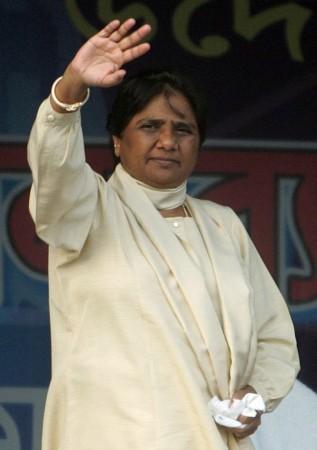
Amidst huge uproar in the house, the Uttar Pradesh (UP) Assembly has passed a resolution by voice vote to divide the state into four smaller ones - Purvanchal (Eastern UP), Harit Pradesh (Western UP), Bundelkhand and Awadh Pradesh (Central UP). Announcing the passing of the resolution, Chief Minister Mayawati told reporters on Monday that "it was being forwarded to the Centre".
"This is not a political move by Bahujan Samaj Party (BSP). The party took this step after the Central Government did not take any action on its proposal. The Uttar Pradesh Assembly has fulfilled its duty with regards to splitting of Uttar Pradesh for the benefit of the state," said the Chief Minister.
The 55-year-old Chief Minister stressed that the state had to be reorganized for the proper development of the state and people of Uttar Pradesh. She added that her move to split the state was not a politically motivated one, adding that it was meant to emphasize the lack of development in the state. The Opposition, however, has strongly criticized the motivations behind the bill and the bill itself.
Shivpal Singh Yadav, the Leader of the Opposition, criticized the state government and its move to pass the bill by voice vote, saying that the government should have discussed the no-confidence motion and then put the matter to vote in the House.
Meanwhile, senior Samajwadi Party (SP) leader Azam Khan compared Mayawati to Hitler and the Bharatiya Janata Party (BJP) leader, Siddharth Nath Singh termed the move to pass the bill without any discussion in the house as another example of Mayawati's dictatorial way of governing UP.
However, Mayawati maintained that the Opposition's criticism of the BSP government was politically motivated and an attempt to weaken the BSP.
Political analysts believed that the idea to split the state in four did, in fact, offer Mayawati an advantage - Dalit votes are spread evenly throughout the state. On the other hand, the vote banks for most other parties, like the SP, the BJP and the Congress, were clustered in certain areas.

















